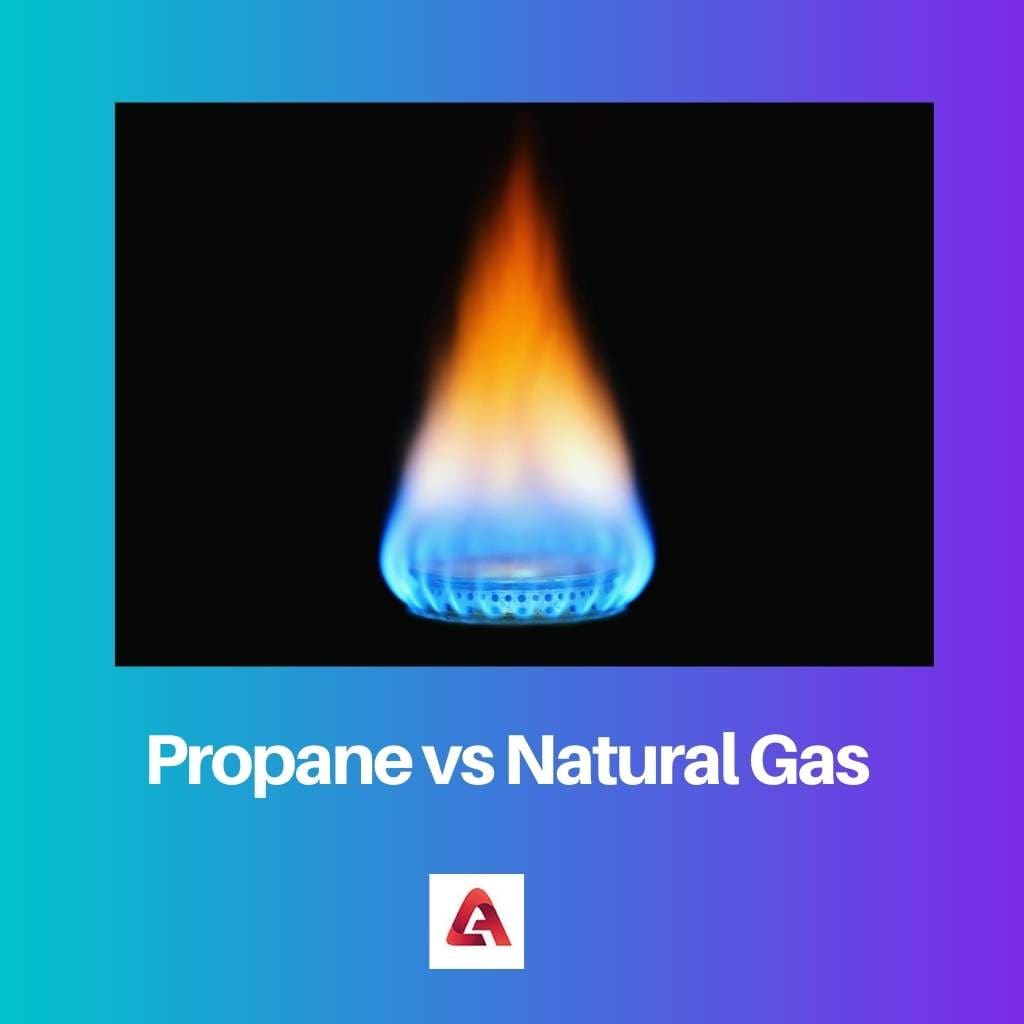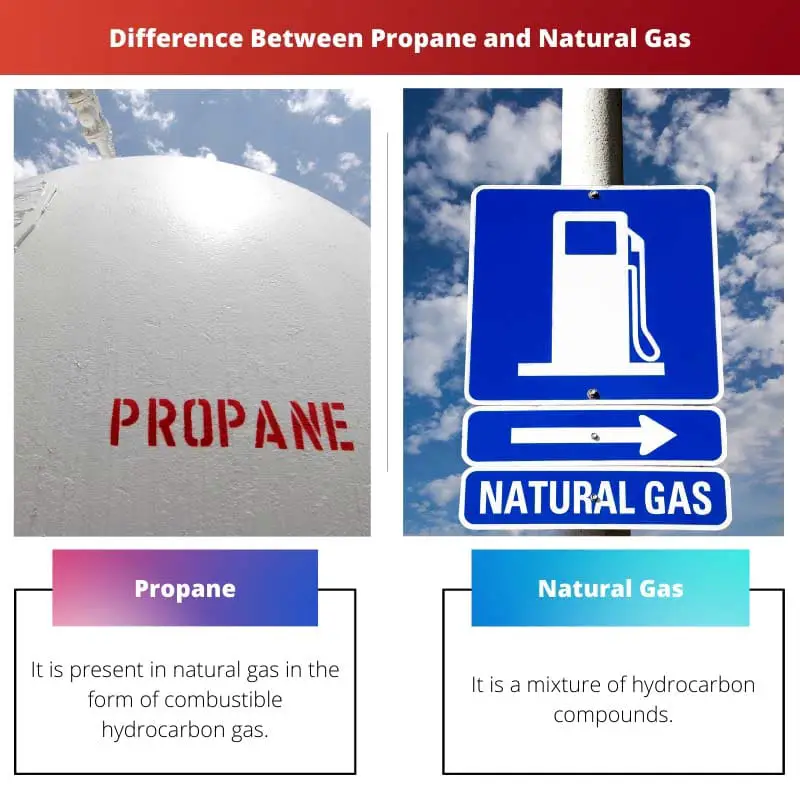Propane and natural gas are two of the popular fuels among them, but they are not only limited to vehicles; they are also used in furnaces, appliances, and even in the home.
In addition, propane and natural gas are tasteless and odourless, which makes them dangerous in case of leakage.
Key Takeaways
- Propane is a byproduct of natural gas processing and petroleum refining, while natural gas mainly consists of methane and is extracted directly from the ground.
- Propane has a higher energy content per cubic foot, resulting in greater heating efficiency than natural gas.
- Propane is stored and transported as a liquid in pressurized tanks, whereas natural gas is delivered to homes via pipelines in its gaseous state.
Propane vs Natural Gas
Propane is a colourless, odourless fuel which is a saturated hydrocarbon. It is compressed and stored in liquid form inside cylinders. Natural gas is a naturally occurring mixture of hydrocarbon gas consisting of methane. It is distributed through a gas pipeline.

Commercially, it is available as a major constituent of LPG (liquefied petroleum gas) or as liquid propane.
It is also necessary for a range of other chemical products, such as dyes and fertilizers. As a fossil fuel, it is used for the generation of electricity.
Comparison Table
| Parameters of Comparison | Propane | Natural Gas |
|---|---|---|
| Interpretation | It is present in natural gas in the form of combustible hydrocarbon gas. | It is a mixture of hydrocarbon compounds. |
| Energy | 2500 BTUs/cubic foot | 1030 BTUs/cubic foot |
| Storage | Gas cylinders or tanks | Natural gas pipeline |
| Environmental Impact | Eco-friendly green fuel | Clean burning “greenhouse gas” |
| Cost | Expensive than natural gas | Cheaper |
What is Propane?
Propane at a standard temperature is gas, and when compressed, it is converted into liquid. In its liquid form, it becomes easier to transport propane.
The others include propylene, butylene, butane, butadiene, and isobutylene. Propane burns more cleanly than coal and gasoline, even if it has lower energy density.
Organic chemicals such as propylene glycol and acetone are derived from propylene. The oxidation of propane is also of commercial interest, but oxidation with compounds of hydrogen, oxygen, and carbon.
-42.1 degrees Celsius is the boiling point of propane, and that’s why, under elevated pressure, it can be liquefied. Therefore, it is handled and transported as a liquid in tanks and cylinders.

What is Natural Gas?
Natural gas is a mixture of gas four gases that occur naturally, four of which have different molecular structures.
After the extraction of this, it is combined with crude oil and thus, it can be used in everyday energy.
America is the world’s leading producer of natural gas. According to estimation, it has at least 100 years of natural gas supply.
Natural gas is also a clean energy source due to many reasons such as electricity generation, fertilizer making, transportation (land and sea), and usage in most of the manufacturing products.

Main Differences Between Propane and Natural Gas
- In terms of compressibility, it is easy to convert propane into propane liquid by easily compressing it, while natural gas cannot be easily compressed to liquefy the gas.
- The propane gas is stored in portable tanks, and that’s why it is easier for liquid propane to stockpile, whereas natural gas is distributed by a gas line that is directly connected to the pressurization plant of the local utility company.


As informative as this article is, it failed to maintain my attention
I can understand that, it could use more engaging elements.
Yes, it felt a bit dry in terms of content delivery.
The content is too technical, might not be accessible to all readers
I agree, it may be challenging for some to understand.
The comparison table is very useful for the readers
Indeed, a well-organized article.
Yes, it sums up the information quite well.
I did not know about the key takeaways, very enlightening
Propane and natural gas – quite intriguing!
The article presents a balanced perspective.
Yes, it covers both sides effectively.
I knew some of these facts already, but still a good read.
This is a very interesting article, as it is very educational and informative
I agree with you, it is always good to get informed.